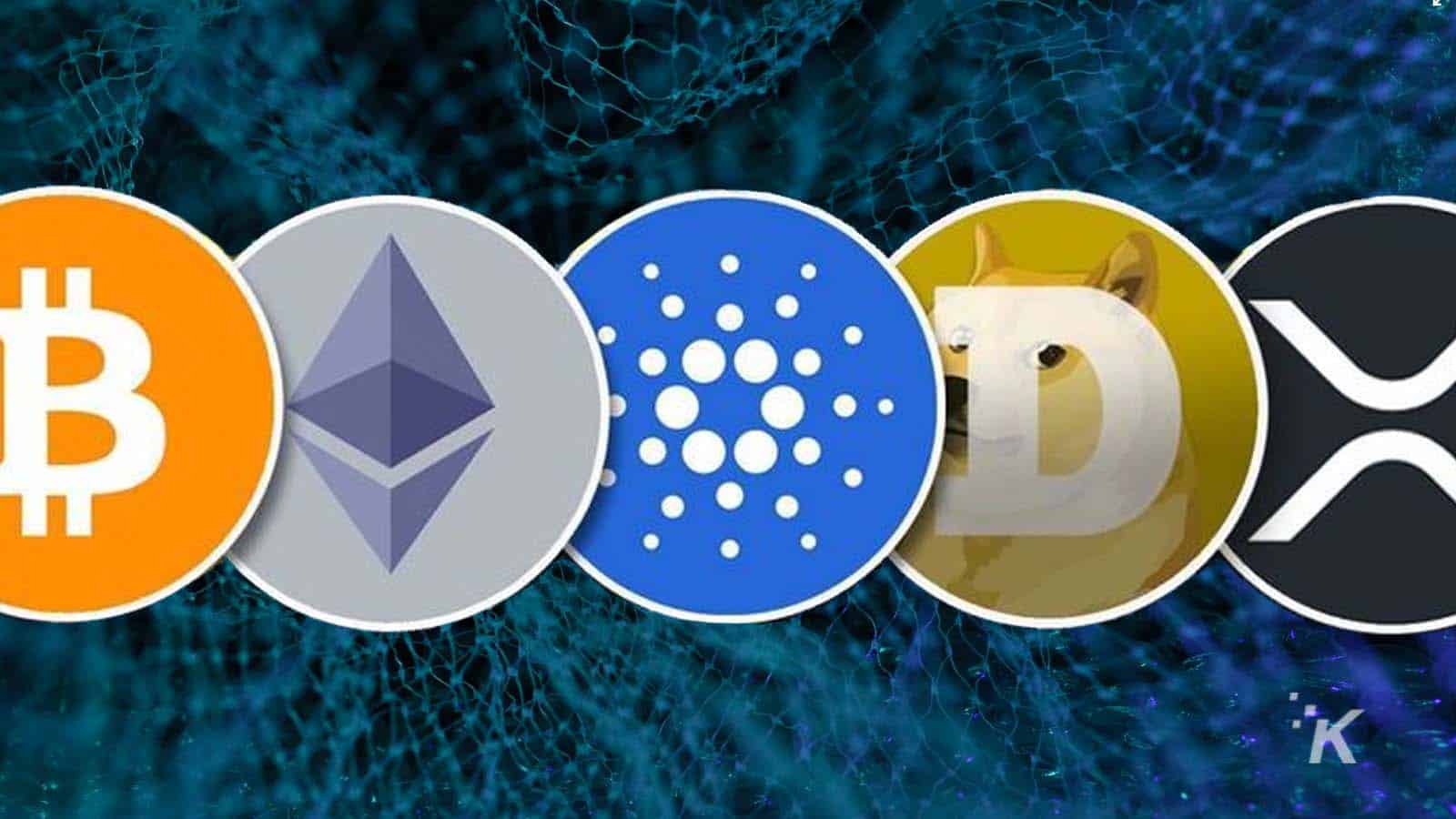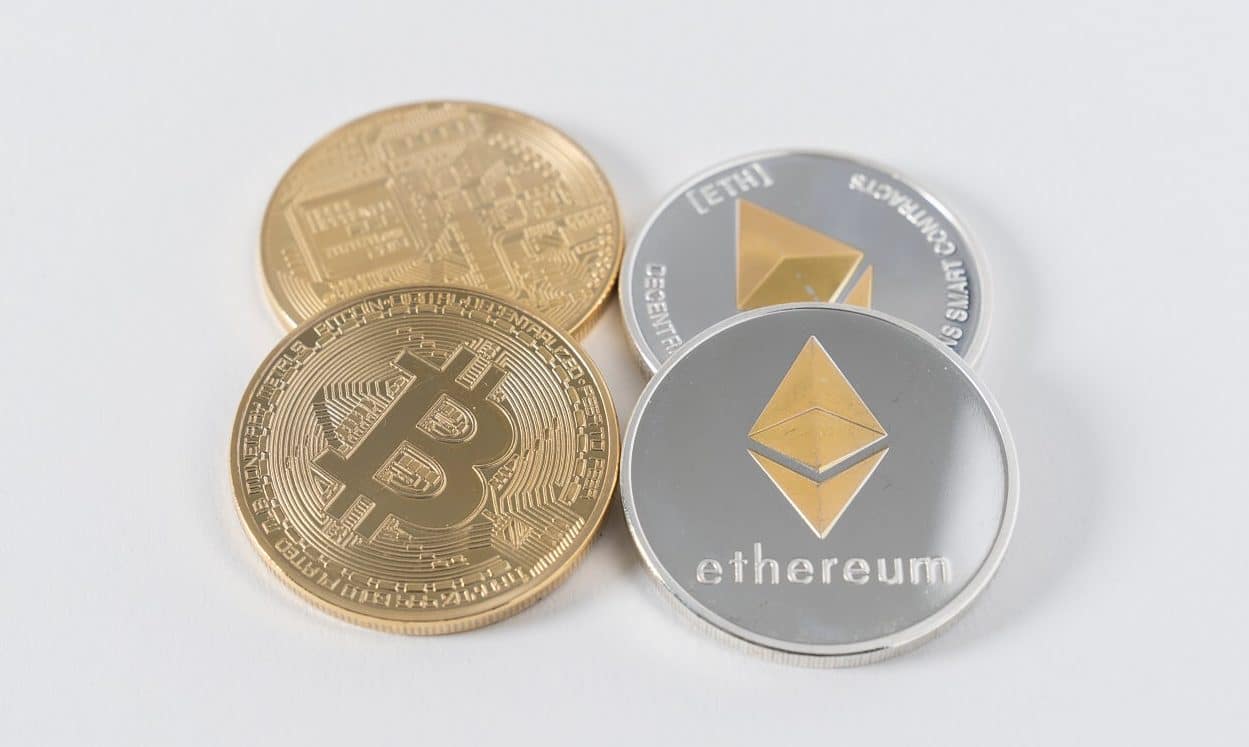Sponsored
What are altcoins, and why they matter in the crypto market
Altcoins, such as Ethereum, Ripple, and Litecoin, are cryptocurrencies that offer different features and solutions than Bitcoin, fostering competition and innovation in the cryptocurrency market.

Just a heads up, if you buy something through our links, we may get a small share of the sale. It’s one of the ways we keep the lights on here. Click here for more.
In recent years, the term “altcoins” has become synonymous with the evolution and diversification of the cryptocurrency market.
While Bitcoin dominates headlines and market capitalization, it’s the myriad of altcoins that add depth, innovation, and competition to this dynamic landscape.
What are Altcoins?
Altcoins, short for alternative coins, are any cryptocurrencies other than Bitcoin. The term “altcoin” emerged soon after Bitcoin was introduced as a way to describe its successors and competitors.
Essentially, altcoins are cryptocurrencies built on blockchain technology but with different foundations, purposes, or upgrades compared to Bitcoin.

Altcoins can improve certain aspects of Bitcoin, like transaction speeds and security, or introduce entirely new features and functionalities.
For instance, some altcoins are designed to support decentralized applications (DApps), while others might focus on providing greater privacy or enabling smart contracts.
Examples of Popular Altcoins
The altcoin market is vast, with thousands of cryptocurrencies offering various functionalities. Here are some of the most well-known altcoins:
- Ethereum (ETH): Ethereum is the second-largest cryptocurrency by market capitalization. Launched in 2015, it introduced the concept of smart contracts and DApps, enabling developers to create decentralized applications on its blockchain.
- Ripple (XRP): Ripple focuses on facilitating real-time, cross-border payments. It’s known for its unique consensus algorithm, which differs significantly from the proof-of-work mechanism used by Bitcoin.
- Litecoin (LTC): Often referred to as the “silver to Bitcoin’s gold,” Litecoin offers faster transaction times and a different hashing algorithm, making it more efficient for smaller, everyday transactions.
- Cardano (ADA): Cardano emphasizes a research-driven approach to blockchain development, focusing on security, scalability, and sustainability through academic peer review.
- Chiliz (CHZ): Chiliz is a digital currency for sports and entertainment platforms, primarily used to purchase Fan Tokens on the Socios.com platform. You can learn more about What are Altcoins? through their site.
What distinguishes Ethereum from Bitcoin?
Ethereum sets itself apart from Bitcoin through its programmable blockchain.
While Bitcoin serves primarily as a digital currency, Ethereum’s blockchain enables the creation and execution of smart contracts—self-executing contracts with the terms of the agreement directly written into code.
This feature allows for the development of decentralized applications, making Ethereum a versatile platform for uses other than transactions.
Why is Ripple known for its unique consensus algorithm?

Ripple utilizes a consensus algorithm called Proof-of-Consensus, which is notably different from Bitcoin’s Proof-of-Work. This algorithm allows for faster and more energy-efficient transactions.
Unlike Bitcoin, which relies on miners to solve complex mathematical problems, Ripple’s system verifies transactions through a network of independently validating servers, ensuring that changes are added to the ledger only through majority agreement among servers.
Importance of Altcoins in the Cryptocurrency Market
Altcoins play a crucial role in diversifying the cryptocurrency market. By offering a range of features and solutions, they provide alternatives to Bitcoin and enable greater innovation within the space.
Altcoins address various needs, from increased transaction speed and reduced fees to specialized functions, such as smart contracts and enhanced privacy.
How do altcoins contribute to market competition?
Altcoins foster competition by pushing the boundaries of blockchain technology and encouraging continuous improvement.
For example, Ethereum’s introduction of smart contracts challenged Bitcoin’s dominance and inspired the creation of numerous other blockchain platforms.
This competitive environment drives technological advancements and helps prevent any single cryptocurrency from monopolizing the market.
What role do altcoins play in technological advancements?
Many altcoins introduce technologies and concepts that enhance the functionality and security of blockchain systems.
For instance, projects like Zcash and Monero focus on enhancing privacy features, while others like Polkadot aim to improve interoperability between different blockchains.
These innovations contribute to the overall growth and evolution of the cryptocurrency ecosystem, leading to more robust and versatile blockchain solutions.
Differences Between Bitcoin and Altcoins
While Bitcoin remains the pioneer of cryptocurrencies, altcoins have emerged with advancements that often address Bitcoin’s perceived limitations.
Understanding these differences is key to appreciating the diverse landscape of digital currencies.
How do the consensus mechanisms of Bitcoin and altcoins differ?
Bitcoin uses a Proof-of-Work (PoW) consensus mechanism, where miners solve complex cryptographic puzzles to validate transactions and secure the network. While secure, this process is energy-intensive and slow.
In contrast, many altcoins use different consensus mechanisms. For example:
- Proof-of-Stake (PoS): Coins like Ethereum (post-merge) and Cardano use PoS, where validators are chosen to create new blocks and verify transactions based on the number of coins they hold and are willing to “stake” as collateral.
- Delegated Proof-of-Stake (DPoS): Altcoins like EOS and TRON use DPoS, where stakeholders vote to elect a small number of delegates who are responsible for validating blocks, making the process faster and more efficient.
- Proof-of-Authority (PoA): Used by VeChain, PoA relies on a reputation-based consensus algorithm where a few trusted nodes validate transactions, ensuring high throughput and scalability.

What makes transaction speeds and costs vary between Bitcoin and altcoins?
Transaction speeds and costs can vary significantly between Bitcoin and altcoins due to differences in their underlying technologies and network structures:
- Block Size and Time: Bitcoin’s block size is limited to 1 MB, and a new block is created approximately every 10 minutes. In contrast, altcoins like Litecoin have larger block sizes and shorter block times (2.5 minutes), enabling faster transaction processing.
- Scalability Solutions: Many altcoins incorporate scalability solutions that Bitcoin lacks. For instance, Ethereum uses Sharding and the Lightning Network to enhance transaction speeds and reduce congestion.
- Consensus Mechanism Efficiency: The efficiency of consensus mechanisms impacts transaction costs. PoS and DPoS mechanisms are generally more cost-effective and faster than PoW, as they require less computational power and energy.
Understanding these differences helps investors and users choose the best cryptocurrency for their needs, whether for investment, transactions, or leveraging blockchain technology’s full potential.
Technological Innovations and Future Prospects

Altcoins are continuously driving technological innovation in the cryptocurrency market.
From developing new consensus mechanisms to enhancing privacy and scalability, altcoins often pioneer advancements that later influence other cryptocurrencies, including Bitcoin.
For instance, the smart contract functionality introduced by Ethereum has inspired numerous new blockchain-based applications and platforms.
These innovations have far-reaching implications, potentially transforming industries beyond finance, such as supply chain management, healthcare, and entertainment.
As the cryptocurrency market evolves, altcoins will likely play a pivotal role in shaping its future, fostering a more decentralized and efficient global economy.
In conclusion, altcoins are essential to the ongoing development and diversification of the cryptocurrency market. By offering alternative solutions and addressing Bitcoin’s limitations, they contribute to a more innovative and competitive environment.
Whether you’re an investor, a developer, or simply a cryptocurrency enthusiast, understanding the role and impact of altcoins is crucial in navigating this rapidly evolving landscape.
Have any thoughts on this? Drop us a line below in the comments, or carry the discussion to our Twitter or Facebook.
Editors’ Recommendations:
Disclosure: This is a sponsored post. However, our opinions, reviews, and other editorial content are not influenced by the sponsorship and remain objective.



































